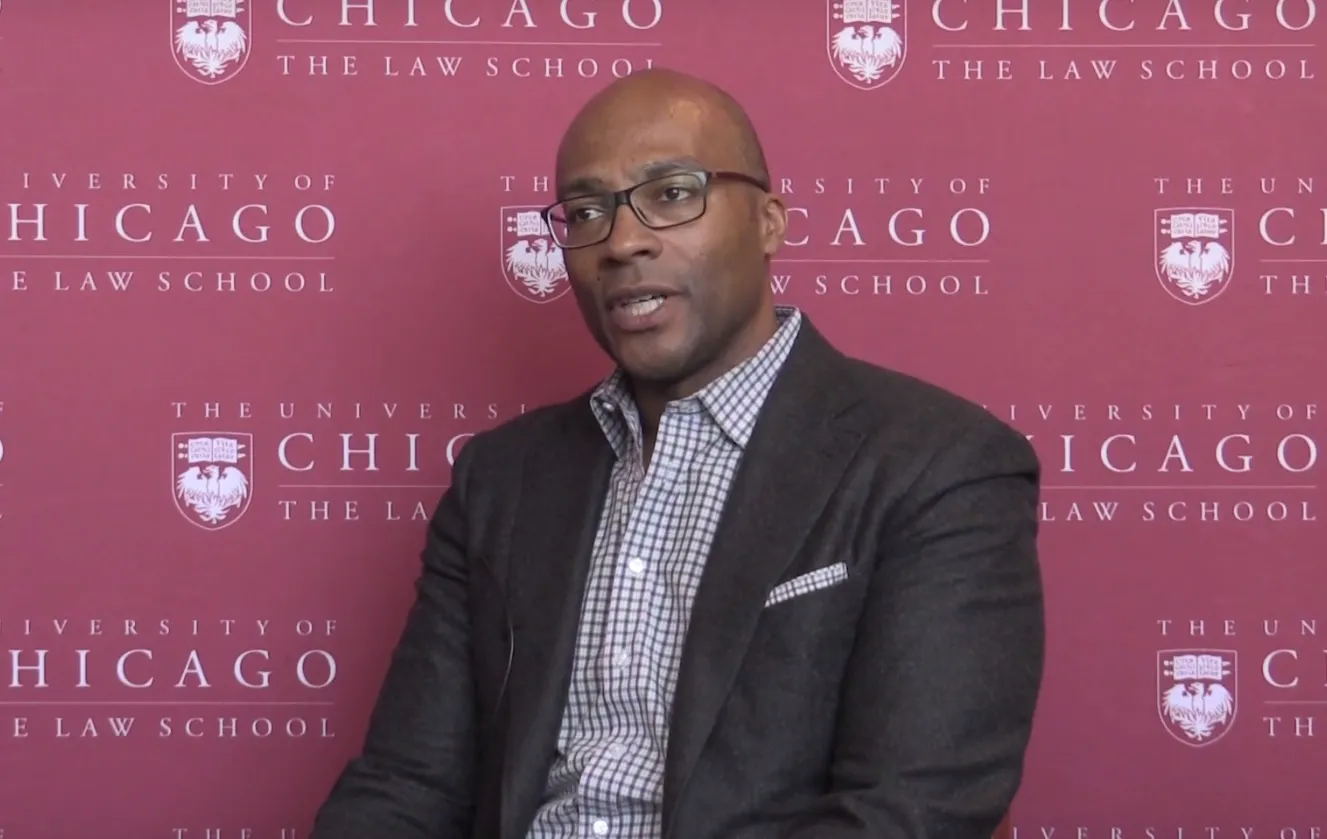My Chicago Law Moment: Stanley Pierre-Louis, '95, Learned to Never Take an Argument at Face Value

My Chicago Law Moment is a series highlighting the Law School ideas, experiences, and approaches that have impacted our students and alumni. Video produced by Will Anderson.
Stanley Pierre-Louis,’ 95, left the Law School determined never to be a “headnote lawyer”—one who reads the summary of a case and takes the headline argument at face value.
It was a concept drilled in to him from beginning of his 1L year—and one that would resonate long after he left.
The idea “was to go beyond what you saw as the headline and understand the underlying dynamics because they might tell you a different story, they might lead you to a different outcome,” said Pierre-Louis, ’95, the general counsel of the Washington-D.C.-based Entertainment Software Association. “People assume that the law is this static idea, this static body of work, and the truth of the matter is, the sands are always shifting underneath you—and you have to figure out how to improve upon it and how to harness it, either for the good of your client or for the good of humanity.”
This idea, which has become an integral part of his approach to the law, was reinforced in class.
“Many times … we were asked questions that weren’t stated, and they weren’t apparent,” he said. “They required another level of understanding, some deep thought. You weren’t required just to read a case, you were required to understand why the litigants brought the case and what the judge was trying to get to in the opinion.”
His relationships with faculty helped deepen his understanding of the Chicago Way. Professor Elena Kagan—now a U.S. Supreme Court Justice—had a way of stripping issues down to their core. He remembers Professor Obama: “He was the only one who went by his first name, and he was a terror on the basketball court.”
But it was Dean Douglas Baird, who was also Pierre-Louis’ advisor and his Civil Procedure professor, who made a particularly big impact.
“We quickly developed a relationship where once a quarter, we’d go to the Quad Club and talk about school, talk about career opportunities, talk about his work, and just talk about burning issues in the law,” Pierre-Louis remembered. “At one point I took a group of friends over [to his home], and he cooked for us, played us some opera, and showed us some artwork.”
These ideas and relationships, he said, have had an important impact on his career. And he’s not the only one, something he often remembers when he runs into a former classmate.
“It is always a reminder of where we’ve come from,” he said, “but also a reminder of how much we’re achieving.”
